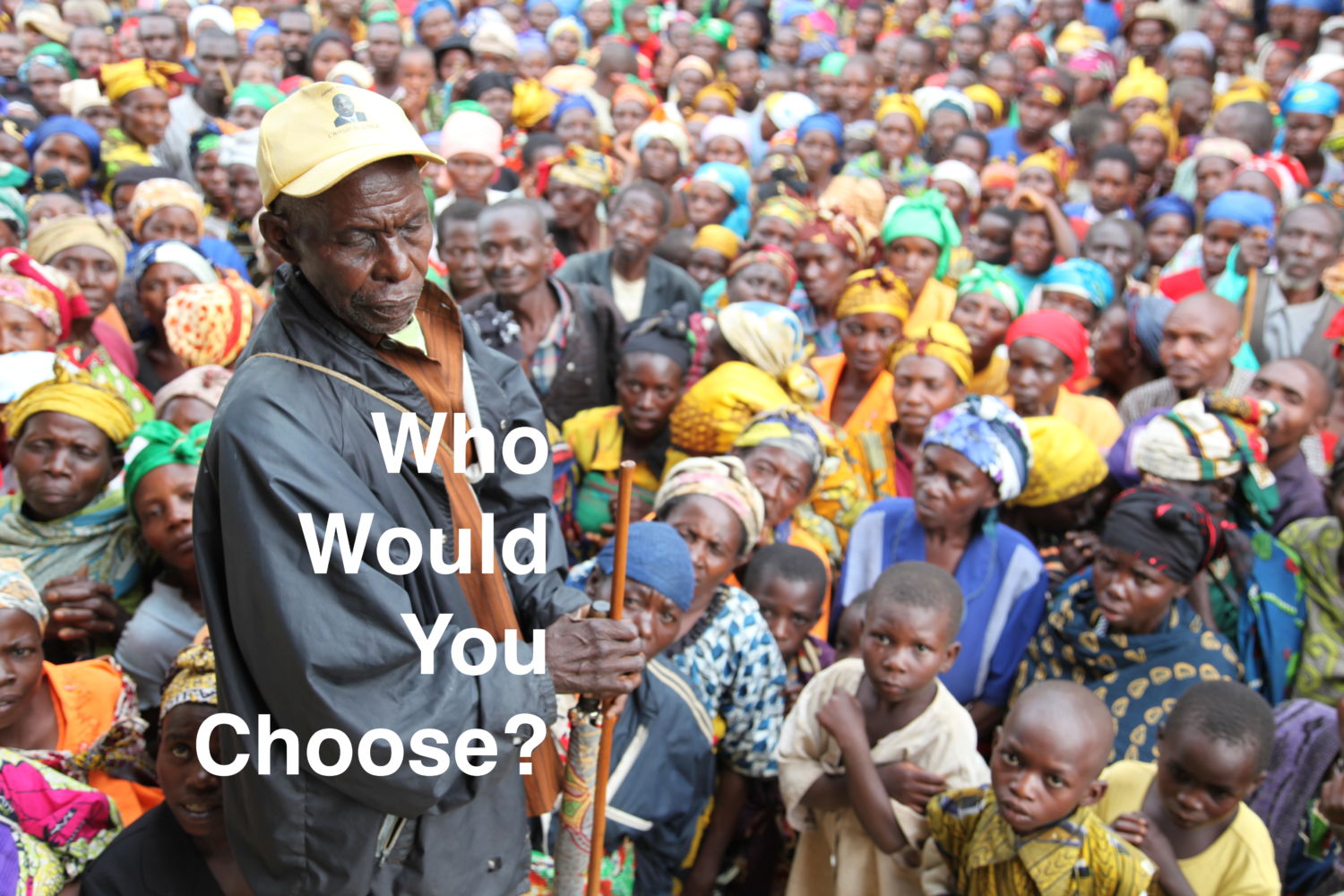An entire village has been burned to ground due to war. You have been working in the region for a few years and have only found two trustworthy families. They work with you and help out whenever you are in the area.
The situation is desperate, but you have a big problem. You have some resources to help people out, but you only have enough to help 5 of the 50 village families, who do you choose to assist?
This is a normal decision I face whenever I am involved in a sustainable development project overseas. Who do you choose? My answer:My answer:
Don’t choose anyone
A few years ago I was working on a food-aid project for people starving in DR Congo. We had enough food to support part of the population, approximately 21 000 people out of 100 000+ How do you choose who gets to eat and who does not?
Think about how fine a line it is between the last person to get the food ration and the first person who does not get the ration. The difference between them is impossible to tell for any outsider.
That is the key right there.
The difference is impossible for an outsider, so don’t make the decision. This is where partners on the ground make all the difference in the world. People who live in the community should always make those kind of decisions. This is how it works:
Figure out what are you trying to do: Help the most vulnerable? Improve business? Reduce sickness? Figure out your one big plan.
Tell us what you think: Set up your first criteria. Are you focusing on orphans, expectant mothers, people who are living with HIV, a certain region? This is where you can be involved in making the first decision (don’t worry it will change in a moment).
Ask the Experts: Check with your partner if that criteria (2) actually fits your overall vision (1). Will it actually help the group you first decided to support? This is where you may have some assumptions that you need to fix, your partners will help you modify them
Change your mind: Modify your idea according to the experts who live in the community – maybe orphans are less vulnerable than the aged – you wont know unless you have the conversation.
Shout it out!: Have your partner widely share the criteria in an extremely open way, this includes community meetings, announcements in churches or mosques, posted signs, home visits. Whatever is necessary to get the word out to everyone.
Have the community decide on who gets to decide: Have the community set up a “Beneficiary Selection” committee. The community will know who they trust and will choose people they feel comfortable with.
This can be as simple as a show of hands or applause for a possible candidate at an open meeting.
Set up a complaint box: If someone has a reason to complain, give them ample opportunity to do so! Complaints keep us accountable and highlight problems and better ways to do things – its another version of democracy not ingratitude.
Publicly post the names of people who are selected: this feels strange to me. I like my privacy and think that this feels undignified, but in many collective communities around the world this would be a perfectly acceptable thing to do.
Do what you said you would do: Go ahead, what are you waiting for?
Finish. Celebrate. Leave: Be clear when you are done. Thank people publicly. Share the story respectfully. Then move on.
How do you make really important choices between two great options?
Mark Crocker


